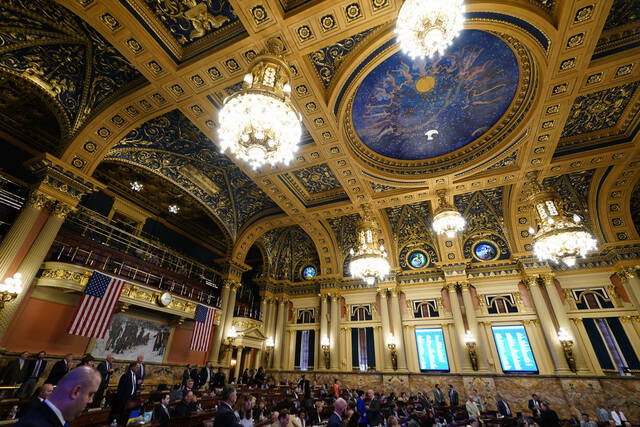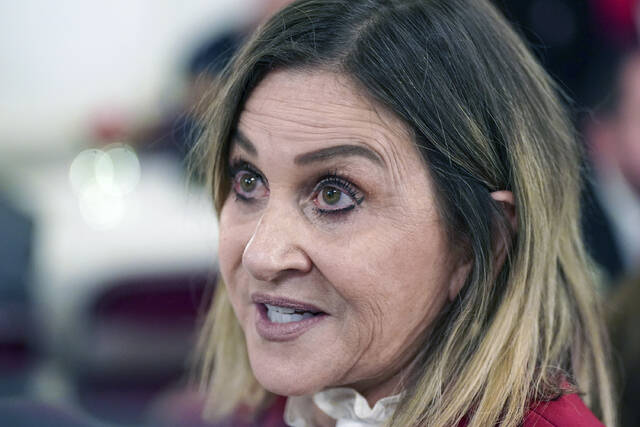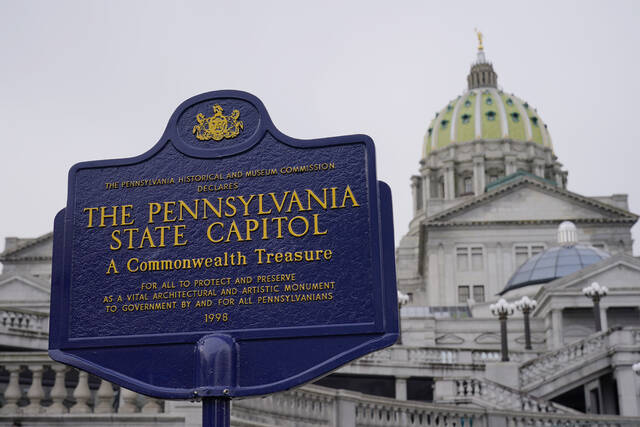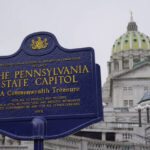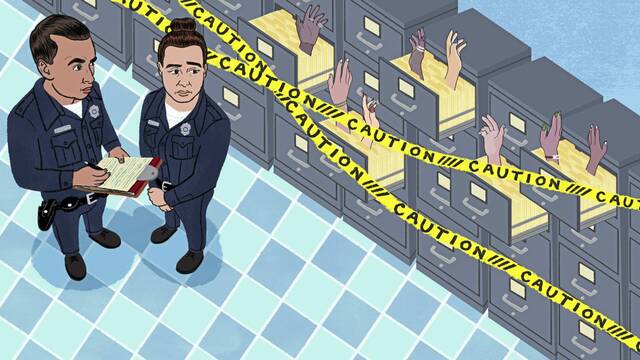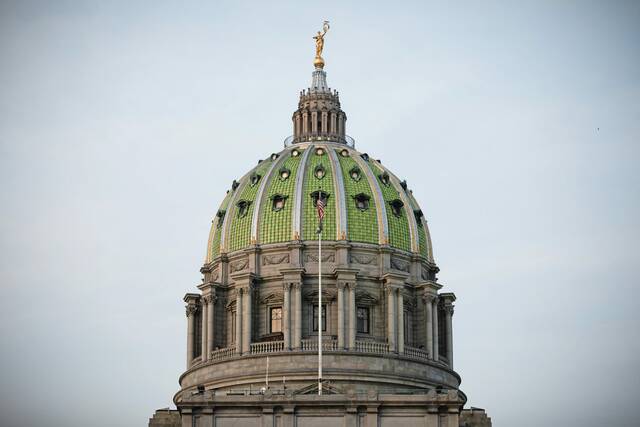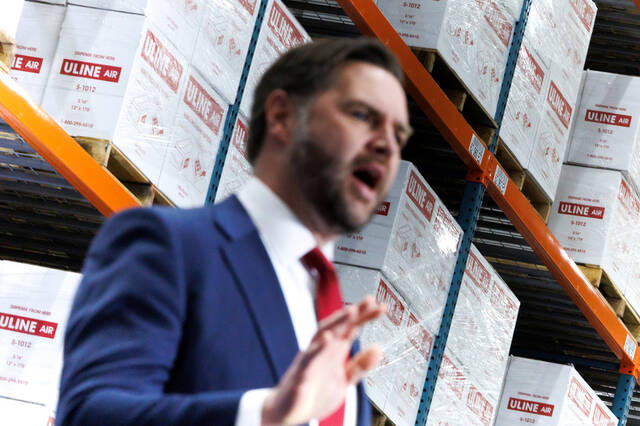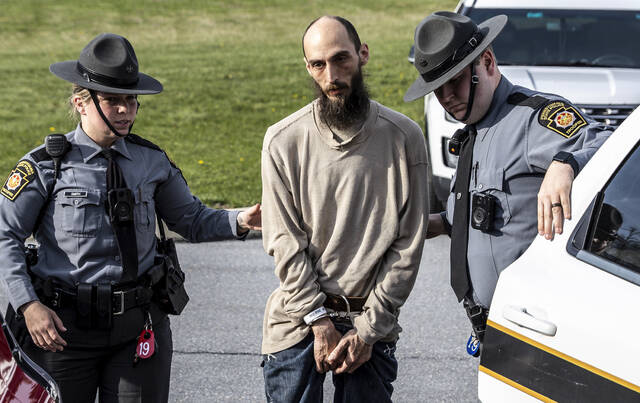Gov. Josh Shapiro signed a new state budget Thursday, putting to rest the worst fears over a budget stalemate that could cost Pennsylvanians access to critical safety net programs and send cash-strapped school districts scrambling for dollars to open for the new school year.
The crisis was averted through a series of small, administrative steps, all set in motion after Shapiro’s Budget Secretary Uri Monson released a memo dated Wednesday, pledging not to release funds for a number of budget line items that are either new, or newly-funded by state dollars until required enabling legislation is passed.
With that memo in hand, which majority Senate Republican leaders said affirmed the legislature’s power of the purse, the Senate convened in public session for the first time since early July to permit the $45.5 general fund appropriations bill move to Shapiro’s desk.
Shapiro, less than two hours later, signed the budget bill into law, though — as he had pledged to his Democratic allies in the state House earlier this summer — he also exercised his line-time veto powers to erase $100 million intended to provide direct public funding for private-school tuition vouchers in Pennsylvania for the first time ever.
On that issue, Shapiro said that with the Democratic-controlled House and the Republican-controlled at impasse on that issue, he is unwilling to hold up passage of the rest of what he considers a good plan for one issue.
“Improving and expanding opportunities for children continues to be a priority for me,” Shapiro stated in his veto message, “and I consider this to be unfinished business all parties must work together on as we move forward.”
Still, Shapiro, who signed the budget bill in private and without a press availability, exulted in the Thursday’s step, even though it came 34 days past the original due date.
“With this budget and the expansion of the Property Tax / Rent Rebate, we’re… delivering the largest targeted tax cut for our seniors in nearly two decades, creating real opportunity for our workers by expanding vo-tech and apprenticeship programs, supporting our state troopers and local first responders, and making historic investments in our kids and their schools,” Shapiro said in a statement released by his office.
“This is what it looks like when government works together to make Pennsylvanians’ lives better,” Shapiro said.
Action on the budget was paused for about a month after Senate Republicans argued Shapiro had broken a promise to push for $100 million in publicly-funded school tuition vouchers — long a top Republican priority that Democrat Shapiro signaled a willingness to consider during his 2022 campaign — when that program ran into stiff resistance with the Democratic Party majority in the state House.
Shapiro, at that time, said that he would line-item veto the voucher appropriation if the House passed the overall bill, and the majority Senate Republicans, who control the calendar in that chamber, declared a cooling-off period was needed.
That prevented Lt. Gov. Austin Davis from signing the budget bill, a legal technicality required before it could move to Shapiro’s desk for enactment and raising some worries about the consequences of a protracted impasse.
Those fears eased Tuesday night, when Senate Republicans called the Senate in session for today’s non-voting session.
After the budget bill was sent on its way across the Capitol to Shapiro’s office, Senate Appropriations Chairman Scott Martin, R-Lancaster, said Monson’s memo played a big part in getting his caucus to the point where it was ready to move forward.
“That obviously was a huge part in it,” Martin said, noting that during the school voucher discussion Shapiro’s office had initially committed to House Democrats that he would not release any voucher funding if enabling legislation for the new program didn’t pass.
Senate Republicans, initially angered by Shapiro’s failure to fight with House Democrats for vouchers, sought an understanding, Martin said, “that, you know, what you’re talking about here (on vouchers) is going to apply here, here, here and here (to new Democratic priorities in the budget) as well, and we came to an agreement on that.”
Senate Majority Leader Joe Pittman said he feels the cooling off period has worked, vis-a-vis the Republicans overall relationship with Shapiro.
“I feel that we have a very good working relationship,” Pittman, in Indiana County Republican, said. “I have come to an appreciation that governors, particularly new governors, certainly have to recognize and learn how best to deal with the General Assembly.”
What remains is for the leaders of Pennsylvania’s divided government — Democrats in the House, Republicans in the Senate, and Shapiro — to complete negotiations on funding formulas and other needed guidelines for what Senate leaders said is about $1.1 billion appropriated for the programs cited in Monson’s menu.
They include:
- $100 million for so-called “Level Up” funds that gives extra funding, on top of regular basic education assistance, to under-served school districts. The budget deal signed a year ago included a code revision specifying that the state would pay out Level Up funding based on metrics from the 2021-22 school year, and specifying the available amount. Without a similar revision to reflect the new year and dollar amount, the Level Up funding in HB611 could not be rolled out, Senate Republicans have argued.
- $50 million allocated for home repairs for low- to moderate-income homeowners and small landlords. This program was passed last year, but funded solely by federal covid-19 stimulus money.
- $10 million for “teacher stipends,” an item that did not exist in prior budget bills, intended to provide stipends to student-teachers.
The coming code bills are also needed, Monson wrote, to implement a proposed $150 million increase in existing state tax credits that businesses can earn for making donations to private school scholarships or public school foundations, and capping this year’s deposit into the state’s Rainy Day Fund at $500 million, instead of the $900 million transfer current law would require.
“This is a significant step in providing a budget to the people of this Commonwealth. But there is the rest of the story,” Pittman said. “This is not a final and completed product. This is not a final and complete process. And there is more work to do.”


